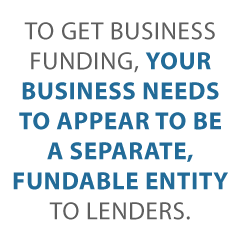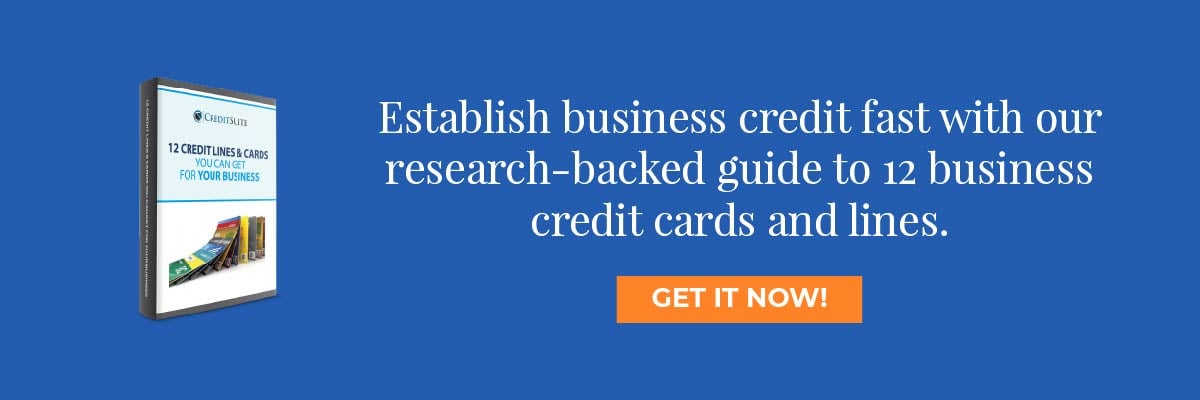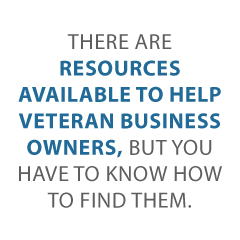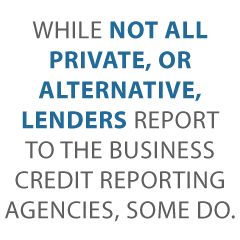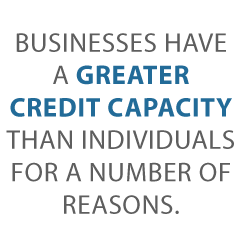
How to Get a Business Phone Number to Build a Fundable Business
Why Do You Need a Business Phone Number to Be Fundable?
When you start a new business, it is vitally important for that business to have separate contact information from yourself. This includes a dedicated business address, phone number, and email address. When you first tell a new business owner this, there are a ton of questions. Why does it matter? Why can’t I just use my own contact information? If I need separate contact data, how do I do that? How do I get a business phone number and address anyway? Do I have to have a separate phone line and location for my business? I mean, I was going to run my business out of my home. How does this all work?
We are going to try to answer each of these questions right now. The first question to answer is the one about how to get a business phone number and address if you are running your business out of your home or virtually. Many new small businesses are run from anywhere the owner can access the internet. Local coffee shops, libraries, etc. can all act as a business location if the business is run online.
Even if you never meet a customer in person, your business has to have a dedicated business address and phone number. The question of how to do this becomes much more complicated however, when your business exists solely on your cell phone and computer. The answer to your question is no, you do not have to have a separate cell phone, a land line, or even a building to get a business phone number.
Share our foolproof business credit building checklist and tell your friends about how you’re building business credit the quick and easy way.
What Are My Options to Get a Business Phone Number?
When it comes time to get a business phone number, you have a few options and many decisions to make. For example, you’ll need to decide first if you are going to use a landline or a cell phone. Next, you’ll need to determine if you want a local number, a toll-free number, a vanity number, or a regular number. How do you choose?
Get a Business Phone Number: Landline vs. Cell Phone
If you get a traditional landline with a business number, the process is as simple as calling out the telephone company. That’s where the simplicity ends however. A business landline is considerably more expensive than a residential one. It is also a kind of invasive process to have a landline installed.
You are probably thinking it is much more expensive to get an extra cell phone. The truth is, however, that you do not even have to do that. There are many services now that will offer a business number and forward it to any number you want using the internet.
They offer other services as well, including transfers, multiple numbers, vanity numbers and even live receptionist. Of course, the more bells and whistles you choose the more they cost, but generally speaking these services are super easy to get started with. Some even offer base packages for free.
Local vs. Traditional Toll-Free vs. Vanity
Usually, you need a toll-free number regardless. If you cater to a local market as well, having a local number could also be useful. A vanity number can be nice for ease of remembering. What’s a vanity number? Those are the numbers that go along with your business, for example, 1-800-55-Pizza for a pizza joint. This type of number is not necessary, but it can help with branding. They are easy to acquire with the new virtual business telephone companies out there. You simply request your number, if it is available, it’s yours!
Is it Better to Get a Business Phone Number Online?
It seems like new options are popping up daily for getting a business phone number using the internet. Known as VoIP, these services are gaining popularity for business phone service. Here are just a few reasons why.
First, they are by far the best value. You can get all the features you need for a fraction of what it would cost with a traditional landline.
Most small businesses simply do not have the budget to set up and handle on an ongoing basis a complicated PBX system with a receptionist and extensions for each desk. When you choose the right VoIP package, you have all of this and more built right in to a low flat rate each month. The following are just a few of the features you will find available with most VoIP companies.
- Internet Faxingjust in case you need to deal with someone who is still faxing.
- Automatic Call Recordingso you can have a record of all calls coming in and going out, if needed.
- Conferencingallows you to give clients a number to call that will allow everyone to be on the same conference line.
- Call Forwardingallows calls to ring on all your devices, and even more than one phone, at once. In addition, you can set for calls to forward only during certain hours.
- Auto-Receptionistscan make your business sound more professional.
- Extensionslet you use a single main number to reach everybody.
- Voicemail and voice to textwill send you emails with the voicemail, and can even put them into text form if needed.
Where to Get a Business Phone Number Online
While there are many companies that offer VoIP telephone services for business, and new ones are coming into the picture each day, these are a few of the most popular currently.
Grasshopper
Grasshopper is a business service that uses the mobile phone you have already. Many others use an office VoIP setup. You can get a business phone number, receive calls from that number using your phone, and set up as many users as you want with custom extensions.
In addition, service from Grasshopper includes:
- Queuing of calls
- Call scheduling
- Conference calls
- Call routing/ auto-assistant
- Voicemail to email
Because it is mobile, it provides more features than other VoIP providers. Be aware however, that some users say the quality isn’t that great. For each one that is unhappy it seems, there are many that have been very pleased, so don’t let that be your sole decision maker. Also, like most VoIP mobile apps, minutes are charged not only by Grasshopper, but also by your mobile carrier.
Share our foolproof business credit building checklist and tell your friends about how you’re building business credit the quick and easy way.
If you do a lot of conference calls, you need to know that you are charged for minutes for each caller on the conference. Meaning if a call only lasts 5 minutes, but you have 5 callers on, then you are charged for 25 minutes. There are other carriers that offer a conference call bridge, meaning you are only charged for the one call.
Phone.com
Phone.com is a great in-between option for multiple users. It provides a VoIP solution without the requirement of a traditional phone, and has solid basic features. You can make and receive calls from your business number as well as view call logs and your address book when you have an internet connection. From your computer you can:
- Que calls
- Set up auto-receptionist
- Schedule calls
- Send and receive faxes
Ring Central
RingCentral has all of the features you would expect or need, and plans start at one $20 a month. They also offer a free trial, but so do a few others. It does require an upgrade to get a 1-800 number. They also offer upgrades that will allow you to integrate with Dropbox, Zendesk, Salesforce and more.
As I said, these are the only players in a relatively new game, but they are some of the most popular at the moment. The thing you need to remember is, do your research. Try to consider not only what you need right now, but what you may end up needing in the future. You need to find a service that will offer everything you could need going forward.
If you simply go with the free or cheapest service for right now and do not consider future needs, you could end up having to change in the future. That’s not only a pain, but it could mean changing your number, which means printing all new materials and updating directories. That is all doable, but much easier to avoid if possible.
What Types of Things Should You Consider when You Get a Business Phone Number?
So when you are choosing a company to go with, what should you consider? Well first, current budget is obviously important. If you cannot pay for it, it won’t do you any good. After that, consider what you need currently. Once you have a few options narrowed down based on these needs, narrow it down further based on what you think you may need in the future.
For example, are you going to remain small, with any other employees being local? You may not ever need conference calling ability. Is it possible you could need to add extensions or need a live receptionist option in the future? Then be sure you get a business phone number with a company that offers these options.
What Does a Business Phone Number Have to Do with Being Fundable?
There’s the big question, right? What does having a business phone number have to do with fundability? Well, it can help to understand what fundability is and why it matters. To get business funding, your business needs to appear to be a separate, fundable entity to lenders. For this to be the case, a business has to stand on its own apart from its owner. This means it:
- Is formally incorporated as a Corporation, S-corp, or LLC
- Has an EIN
- Already has a dedicated business telephone number, address, and email address
- Has a dedicated business bank account
- Uses a professionally put together, user friendly, business website
- Has a D-U-N-S number
In addition to helping a business appear fundable to lenders, having these things in place provides the separation from owner necessary to start building business credit. When you think of it that way, not having a business phone number can do a lot of damage.
Share our foolproof business credit building checklist and tell your friends about how you’re building business credit the quick and easy way.
How Does a Business Phone Number Help You Build Business Credit?
Before you ever make it to a lender that wants to see your business as fundable before giving you money, you have to build business credit. It is virtually impossible to do this without a business telephone number or any of the other things mentioned above. Here’s why. To establish business credit where there is none, or to begin to repair poor business credit, you are going to have to establish tradelines with starter vendors.
These are vendors in the vendor credit tier that will extend net terms on invoices without a credit check. They do, however, check other information before they will extend these terms. This includes several different things, and many like to see a business number listed in the directories.
To find out more about starter vendors in vendor credit tier and how the business credit building process works, go here.
What Else Do You Need to Do to Build Business Credit?
After you have set your business up to appear fundable to lenders, and after you establish trade lines with starter vendors, you need to continue the process. After enough tradelines are reporting to your business credit report, you can begin to apply for credit cards in the subsequent credit tiers. These include the retail credit tier, the fleet credit tier, and the cash credit tier.
The retail credit tier is made up of those cards that are directly tied to a store, such as Home Depot or Best Buy. The fleet credit tier includes cards from companies like Fuelman and Shell that can help manage fuel costs, as well as costs related to fuel and auto maintenance. The cash credit tier is the main goal, and includes cards that are not related to specific retailers or costs.
The key is to get enough accounts reporting from each tier to sufficiently build your score so that you can move on to the next tier. The vendor credit tier is the beginning. Some vendors will not extend net terms if there is no business number. If you do you use your personal number, you run the risk of payments being reported to your personal credit rather than your business credit, which defeats the whole purpose.
You Need to Get a Business Phone Number, Start Now!
If you do not already have a business number, start by considering exactly what your budget is and what you need. Then, do some research. Find out who has what you need for what you can afford right now, with the option to add on anything you may need in the future. That should narrow now your choices significantly. Whatever you do, do not use your personal number. That will not help you when it comes to running and growing your .
Looks great, nice job!
The post How to Get a Business Phone Number to Build a Fundable Business appeared first on Credit Suite.

